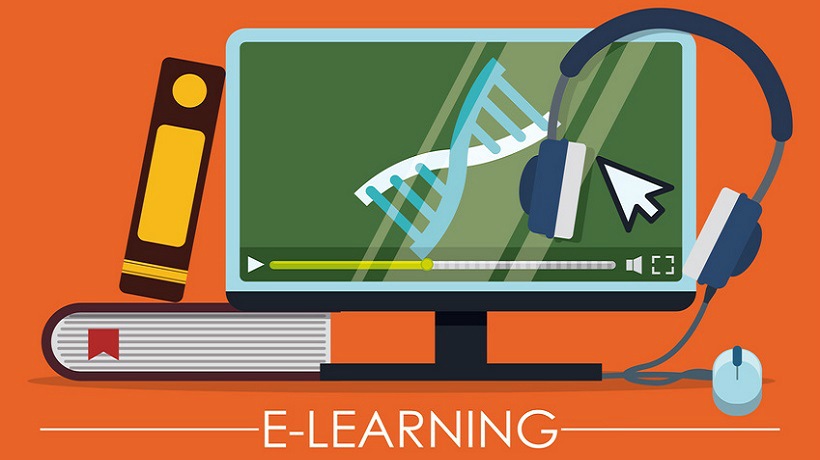How To Study Better: 7 Research-Backed Tips
What if you could study better – you know, spend half the effort and get double the results? There's a science to studying, and thousands of researches have been conducted to validate existing study methods, debunk study myths, and even introduce new study techniques. Here are 7 research-backed tips to help you study more effectively.
1. Take Notes The Old-Fashioned Way
A lot of research have been published to establish notetaking as a good study aid. In fact, a particular study found that students were seven times more likely to recall information a week after they were presented with the information if they had recorded it in their notes.
What might have caused a bit of controversy when it comes to notetaking, however, is increased digitization; how does technology affect our ability to recall what is recorded in our notes? Do we get the same benefits from note we hurriedly type on a computer as we get from note we carefully handwrite? A study by researchers at Princeton University and UCLA Los Angeles found that, while students who type their notes on a computer record more and type faster, students who handwrite their notes are able to better comprehend and recall the subject they wrote about.
2. Make Use Of Practice Tests And Test Preparation Materials
Sometimes, we begin to wonder if test preparation materials are of any use. Research show that they can be hugely beneficial. Psychologists from the Purdue University found that people who tested their knowledge of a subject shortly after learning were able to retain 50 percent more of what they studied compared to students that took no practice test.
Taking practice tests after studying, or making effective use of preparation materials when trying to take a test or an exam, can go a long way to boost your understanding of a subject and help you recall key information.
3. Form Or Join A Study Group
We are social creatures, and a core part of our evolution is our social instinct. When it comes to studying, however, is there any benefit to being social? Apparently. Research shows that a properly organized peer-led study group can help improve students’ grades; a particular study of 110 students found that students who studied in a peer-led group scored an average of 5.5 points higher in their final exams compared to students who were not in a group.
You can study more effectively by taking advantage of the benefits that comes with being in a group; look for people with similar goals and objectives, and form a group to study together.
4. Explain What You Study In A Journal Or Blog
Albert Einstein is famously quoted as saying "If you can't explain it simply, you don't understand it well enough". Ample research has shown that the physicist wasn’t wrong!
Researchers have found that trying to explain something helps reveal our understanding of it -- it forces us to reassess our knowledge and find the underlying principle behind an idea. Explaining also helps find gaps in our knowledge; when you try to explain and find that you can’t, you simply work on your knowledge of a subject until you fully grasp the concept.
A great way to leverage the psychology of explaining to aid your learning is by explaining what you study --in as much details-- in a journal. Better yet, start a blog (which shouldn’t be difficult with resources like this) and explain what you study for the whole world to see. With a blog, knowing that people from different part of the world could be potentially reading your explanation, you’re more likely to give it more effort and as a result have a better understanding of what you’re explaining.
5. Study While Listening To Music
Music can indeed change the world. A core reason why music often breaks barriers and resonate with people from different parts of the world --of different culture, race, and sex-- is because it communicates directly with a part of our brain.
In fact, a study by researchers at Stanford University, who used functional magnetic resonance imaging (fMRI) to study brain activity of people, found that the part of our brain involved with paying attention is engaged when we listen to certain types of music. A similar study found that music can even change our perception -- lightening or dampening our mood depending on the type of music. Music also has the ability to make us more relaxed. With knowledge of this fact, you can select the right music when studying to make you more relaxed and attentive, thus significantly increasing your chances of understanding and committing what you’re studying to memory.
6. Don’t Burn The Midnight Oil
Many are under the impression that you haven’t really studied until you’ve burned the midnight oil. If we are to go by research, not only do you not need to burn the midnight oil to study effectively but it is actually better.
Research conducted by psychologists from the University of Notre Dame found that not only does sleeping aid memory but that sleeping right after studying is one of the most effective ways to ensure you later recall what you study.
7. Don’t Cram
Pretty much everybody can relate to having a test, doing basically nothing the months and weeks preceding the test and spending the few days to the test cramming as much material as possible. There’s no doubt that this won’t help you understand a subject, but you’re also highly unlikely to pass the test. Research by psychologists at UC San Diego found that you have much better chances of success when you study material shortly after learning than trying to cram a few days to the day of the test.









